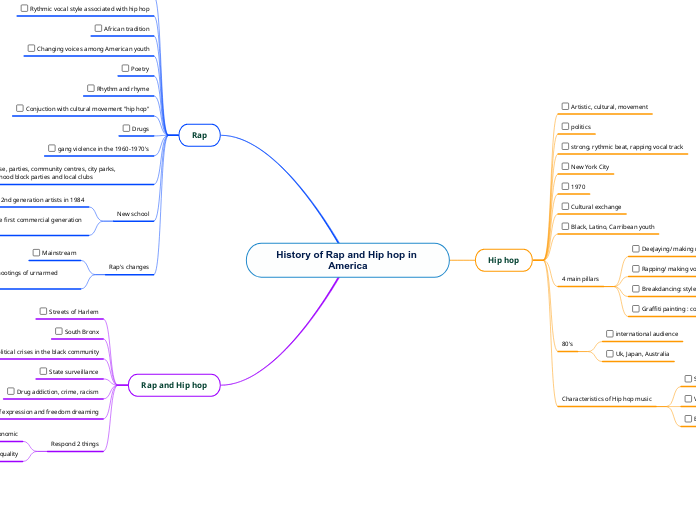によって Ndour Fatou 1年前.
116
History of Rap and Hip hop in America
Emerging from the streets of New York City in the 1970s, rap and hip hop developed as vibrant artistic and cultural movements deeply rooted in African traditions. This genre quickly became a powerful medium for self-expression and social commentary, reflecting the experiences and challenges of Black, Latino, and Caribbean youth.
開く
History of Rap and Hip hop in America Rap and Hip hop Respond 2 things The political inequality The rampant economic self expression and freedom dreaming Drug addiction, crime, racism State surveillance The unfolding political crises in the black community South Bronx Streets of Harlem Rap Rap's changes Artist respond to tension ( police, shootings of urnarmed people) New school Disting the pop sensibilities of the first commercial generation of rap artists By the 2nd generation artists in 1984 local house, parties, community centres, city parks, neighborhood block parties and local clubs gang violence in the 1960-1970's Drugs Conjuction with cultural movement "hip hop" Rhythm and rhyme Poetry Changing voices among American youth African tradition Rythmic vocal style associated with hip hop Mainstream Hip hop Characteristics of Hip hop music Breaks : modern hip hop, roots, encourage dancing Vocals : singing, spoken word, autotune Strong, rythmic beat: fast or agressive or slow and relaxed 80's Uk, Japan, Australia international audience 4 main pillars Graffiti painting : connection between hip hop and graffiti Breakdancing: style dance, acrobate agility Rapping/ making vocal rhymes DeeJaying/ making music : Dj mixers Black, Latino, Carribean youth Cultural exchange 1970 New York City strong, rythmic beat, rapping vocal track politics Artistic, cultural, movement









